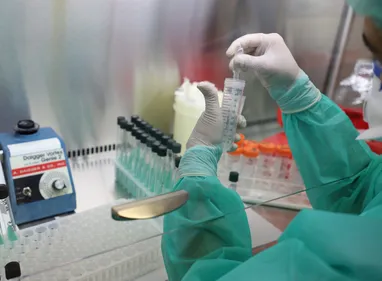WNAM REPORT: The Government of Turkmenistan and the United Nations Development Programme (UNDP) signed a new grant “Exit of the National Tuberculosis Program of Turkmenistan from the Global Fund funding”.
The project will be implemented from January 1, 2025 to December 31, 2027. The budget is more than US$6.2 million, allocated by the Global Fund to Fight AIDS, Tuberculosis and Malaria, tuberculosis and malaria. This initiative marks an important step towards ensuring the sustainability and self-sufficiency of the National Tuberculosis Program by fully transitioning the program to domestic funding by 2027. This was reported in a UNDP press release.
The grant will be implemented jointly with WHO and the National Red Crescent Society of Turkmenistan (NRCST).
Turkmenistan has made significant progress in the fight against tuberculosis. Since 2010, the Global Fund has invested more than US$37 million in the national program. Since 2016, the Government of Turkmenistan has gradually taken over funding for core TB activities. By 2024, only the most complex and expensive treatments for extensively drug-resistant TB are supported by the Global Fund.
Drug-resistant tuberculosis remains a public health challenge in Turkmenistan and globally, and the new project aims to expand access to diagnostic tools such as GeneXpert and mobile units in remote areas, pilot digital solutions, ensure access to essential drugs, and provide patient support services through directly observed therapy (DOT).
The grant will also ensure the long-term sustainability of the National Tuberculosis Programme and its independence from external funding sources.
Narine Saakyan, UNDP Resident Representative in Turkmenistan notes:
“This project underlines Turkmenistan’s unwavering commitment to public health and sustainability. The transition of the National TB Programme to 100% domestic funding is a testament to the country’s leadership and commitment to reduce the burden of TB in Turkmenistan by ensuring universal access to timely and quality diagnosis and treatment for all forms of TB. Together, we can ensure that everyone, regardless of location or circumstance, has access to life-saving care, while continuing to build a sustainable and equitable health system.”


